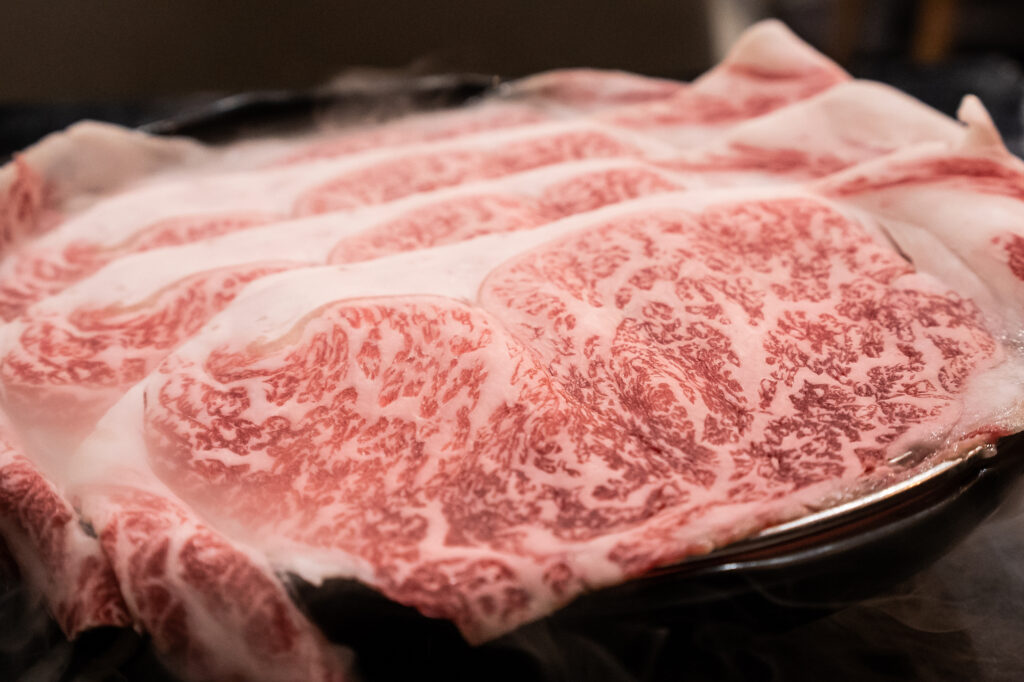Once solely the purvey of high-end restaurants and niche sushi bars, Wagyu beef is now readily available in corner delis, at your local butcher, and even at the supermarket. Originally from Japan, Wagyu beef comes from specially-bred cattle renowned for the heavy marbling of their meat, which gives Wagyu beef its distinctive tenderness and taste.
Wagyu beef – like any other type of beef – can be frozen if you follow a few, simple steps. By taking time and care to freeze your Wagyu correctly, the beef that you eventually pull out of your freezer can be just as good as the day it went in.

Properly freezing your Wagyu beef requires little time and preparation, but reaps big rewards. The best news? The freezer does most of the work for you.
Freezing Wagyu: 4 Helpful Tips
Below are some tips on how to freeze your Wagyu for best results.
1. Seal it up
The first and (depending on how your Wagyu was packaged) easiest step in the process is to ensure that your beef is sealed tightly before putting it into the freezer.
Ideally, your Wagyu should be vacuum-packed by your butcher, but a sturdy ziplock bag will do in a pinch. Just make sure you push out those air bubbles! Sealing your Wagyu correctly will help avoid freezer burn and result in a much tastier product once thawed.
2. Freeze it fast
If you have a chest freezer, use it. If you don’t, try and keep the freezer door shut for an hour or two. Again, this step is all about the taste of your beef when the time comes to thaw.
The enemy here are the ice crystals that form inside your steak as it freezes. If your steak freezes slowly, larger ice crystals will form. These will rupture the muscle, resulting in moisture loss upon cooking. A quick freeze ensures smaller ice crystals, giving you a plumper, juicer steak.
3. Time it right
When it comes to freezing any type of meat, you will need to consider how long you intend to freeze it for. A good rule of thumb is that the larger the cut, the longer it can stay frozen.
Raw whole cuts, such as roasts or sides of beef, can stay frozen for up to six months. Smaller raw cuts, including steaks, will keep for up to four months in the freezer, while raw ground beef and mincemeat should be frozen for no longer than three months.
4. Thaw it out
Arguably the most important, and perhaps the most overlooked step in the freezing process is the thawing of your frozen meat. To avoid the spread of nasty bacteria and the onset of even nastier food poisoning, there are a few things to keep in mind when it comes to thawing your Wagyu.
The gold standard method for thawing frozen meat is to thaw it overnight in the refrigerator. This will help avoid the spread of bacteria in your Wagyu beef by keeping it cool and will result in the best quality of meat once cooked.
Wagyu beef thawed in the refrigerator does not need to be cooked immediately and can be kept there for three to five days.
A faster, but more fiddly way to thaw your Wagyu is through cold water thawing. Keeping the beef in a sealed plastic container, submerge it in a bucket or sink filled with cold tap water, ensuring that you change the water every 30 minutes.
If you thaw using the cold water method, your Wagyu will need to be cooked immediately.
The third method of meat thawing is via the microwave. However, this method will compromise the taste and tenderness of your Wagyu beef and is not recommended for more delicate cuts such as steaks and roasts.
Again, Wagyu beef that has been thawed in the microwave should be cooked immediately.
Can You Refreeze Wagyu?
While it won’t do the flavor profile of your Wagyu beef any favors, it is safe to refreeze cooked meat. Just ensure that you seal it correctly and freeze it quickly, although it should be noted that cooked Wagyu beef won’t keep as long in the freezer as raw Wagyu beef – take two to three months off the timings listed above.
Conclusion
While all meat products are best eaten fresh, you can easily extend the life of your Wagyu with a bit of preparation, and by following a few, simple steps.
If you take the time to freeze and thaw properly, your Wagyu beef will be tender and tasty for days, weeks, or even months.
